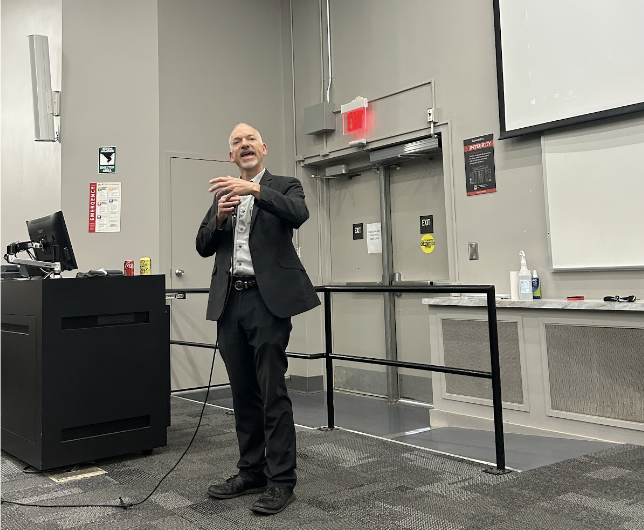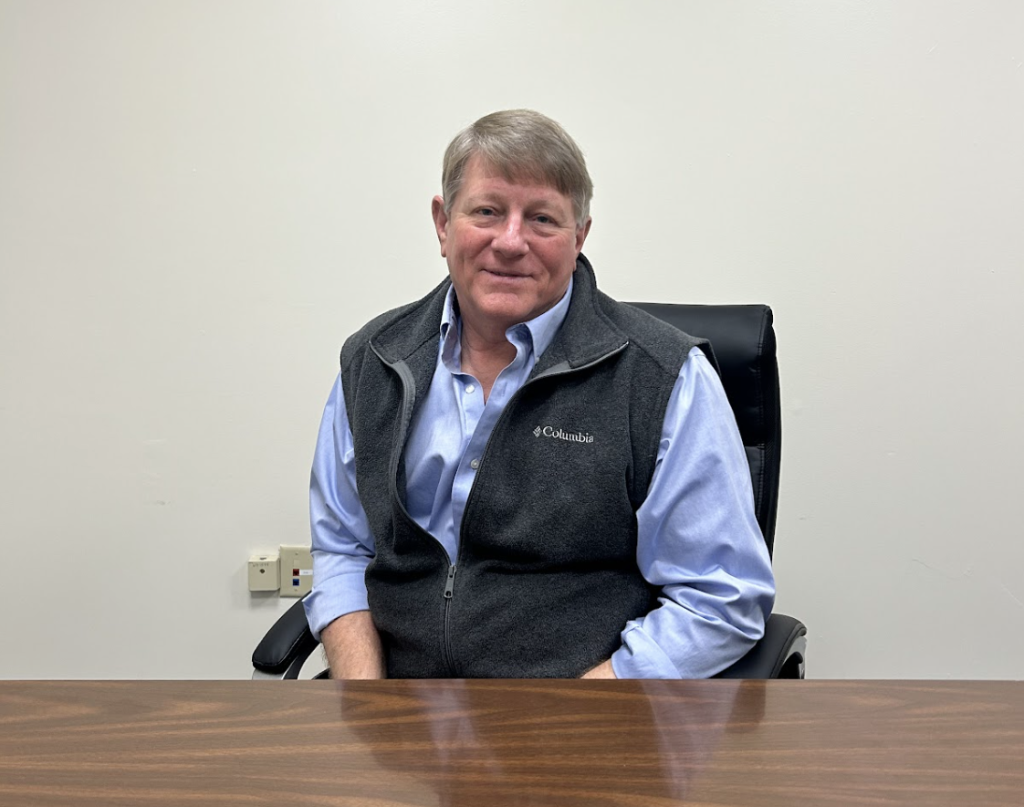Athens-Clarke County Unified Government to prioritize greater walkability through new Future Land Use plan
By Makenna Reavis

Athens-Clarke County Mayor Kelly Girtz announced Friday the Athens-Clarke County Commission’s intent to increase walkability in Athens and the University of Georgia through more high-density housing and vertical growth.
This increased walkability would be achieved through the Future Land Use plan, which is a comprehensive plan to improve the development of Athens and accommodate increasing growth, as the commission expects over 30,000 new residents by 2045. The planning commission is conducting public feedback meetings and an online survey to hear what residents of Athens believe needs to be prioritized in this plan.
Girtz shared some of the public opinion in a news conference on Friday with Reporting I students in the Grady College of Journalism and Mass Communication.
“Folks like the idea of being able to walk out their front door and go get a cup of coffee,” Girtz said, “or being able to walk out their front door and go listen to live music in a place that’s been known for it for decades.”
The Commission plans to make that a reality with more varied housing types in Athens, specifically more high-density housing for both students and other residents, and vertical growth, or building upwards instead of outwards.
Girtz said this would mean more apartment buildings, high rises and housing above shops and supermarkets.
The number of current students at UGA is at an all time high, with 41,615 students currently enrolled in the university, as reported by the office of Public Service and Outreach. Around 15,900 more were accepted as first-year students for the class of 2028, according to UGA Undergraduate Admissions.
Girtz said the government is placing priority on turning unused or inefficient land that is close to campus into student-oriented housing to account for these growing numbers. The William and Rambler Athens apartments are two current examples of this project.
“To the greatest degree possible, we want to look for land that is close to campus,” Girtz said.
Ally Tallent, a first-year electrical engineering major from Calhoun, Georgia, said she would appreciate increased walkability as she finds walking in Athens to be complicated and confusing with not enough sidewalks to reach the places she wants to go.
“There’s a lot of green spaces and parks, but, like, walking to them is a little complicated,” Tallent said.
Residents and students can give their input in the Future Land Use plan survey until the end of April. This will all go into making the Future Land Use plan, updating zoning codes, and updating the Comprehensive Plan that must be turned into the state government by 2028, according to the Athens-Clarke County Unified Government website.
Why I Wrote the Story:
This was our last big assignment in Reporting I. The news conference was different than the other stories I had conducted because rather than a one-on-one conversation interview where I could ask my questions and follow up, this was with a large group of people where I only had one chance to ask a question and had to take notes on the others’ question in order to gather all of the information. Doing this and conducting research beforehand was great for learning how to get all of the information on a subject before reporting on it. Then, when finding my second source, I was able to find one based on what my angle was and who would be able to talk about that. I then conducted a person on the street interview with a University of Georgia student. This is something that I wanted to get more comfortable with, including being turned down.
